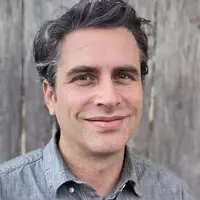Learning and Identity Work in a Field-based Introductory Geology Course
Authors
 Christopher J. Bell, The University of Texas at Austin
Christopher J. Bell, The University of Texas at Austin
 Adam Papendieck, The University of Texas at Austin
Adam Papendieck, The University of Texas at Austin
 Fernando Rey, The University of Texas at Austin
Fernando Rey, The University of Texas at Austin
 Mary Poteet, The University of Texas at Austin
Mary Poteet, The University of Texas at Austin
 David Mohrig, The University of Texas at Austin
David Mohrig, The University of Texas at Austin
Place- and field-based learning experiences have been shown to contribute to students' understandings of the earth as a complex system and strengthen their scientific identities. At the same time, historically field-based sciences like geology are among the least diverse of all STEM disciplines, and increased attention has been drawn to how the cultural and practical norms of scientific fieldwork may play into dynamics of social exclusion and educational inequity. How can we design field- and place-based experiences that work better for a diversity of learners?
Here we present findings from the first year of an ongoing program of design-based research focused on the development of a new field-based introductory physical geology course. Two high-level conjectures guided design and inquiry: (1) focusing on specific questions in specific local field sites will allow students to integrate geoscientific subdisciplines and develop more complex conceptualizations of the earth, and (2) forming an inclusive geoscientific community with students in local places that matter to them will contribute to their development of discipline-based identities.
We found evidence supporting both conjectures. In a survey of learning gains, 85% (n=13) of students reported high gains in understanding the connections among disciplines, a finding elaborated through analysis of student fieldnotes and writing. Most students also reported high gains in feeling like a scientist and part of a scientific community (69%), and reported positive relations with peers (85%) and instructors (92%). Over 90% intended to continue as geology majors. Four months of participant observation and post-course interviews revealed a wide variety of connections--conceptual, cultural, historical, affective and material--salient to the disciplinary identity work undertaken by students. We present a framework to better understand and design for such rich connections. Last, we share our refined design conjectures for the second iteration of the course and invite feedback from meeting participants.

